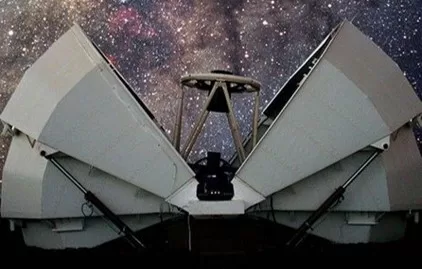
The Kinneret Observatory (https://www.aastro.net/) takes the initiative to start and cultivate collaborations in astronomical research and education, both within Israel and internationally.
The Kinneret Observatory actively participates as a partner in the Israeli Horizon Community (https://www.horizon-space.com). The Horizon Community (THC) was established in 2018 to make space and astronomy studies accessible to Israeli students. The community’s goals are expanding participation in astronomy and space-related fields and increasing exposure within formal and informal education systems. THC is engaged in professional training of community members by community members, and in creating content tailored for teachers and educators. THC utilizes space and astronomy engagement to promote STEM subjects in schools. THC is a leader in educational activities within space and astronomy studies in Israel, organizing significant content and events that provide youth and the general public across the country with captivating exposure to space and astronomy studies. Among its members, you can find representatives from all the bodies operating in the space and astronomy studies field, as well as a direct link to the leaders in the Israeli Ministry of Science and Technology. The Kinneret Observatory organizes activities for students and teachers as well as further astrophysics, astronomy and astronomy education training for members of THC.
The Kinneret Observatory has a fruitful educational collaboration with the educational project The Faulkes Telescope Project (FTP: https://www.faulkes-telescope.com) and the global robotic telescopes network Las Cumbres Observatory (LCO: https://lco.global/about).
The LCO telescope network consists of fully robotic optical telescopes that are remotely controlled. The purpose of the network is to promote astronomical research and education in schools as well as in higher education institutions. Educators and researchers are allowed access to LCO to make astronomical observations. The network currently has 2 telescopes with a diameter of 2 meters, 13 telescopes with a diameter of one meter and 9 telescopes with a diameter of 0.4 meters. The telescopes are located at first-class observation sites around the world: Hawaii, Australia, South Africa, Tsila, the Canary Islands and Israel. LCO is under ongoing expansion and every few years additional telescopes are added.
The Faulkes Telescope Project (FTP) was established to inspire young students to study and take part in real science. Supported by the Dill Faulkes Educational Trust, through the Las Cumbres Observatory (LCO), FTP provides access to observing time on research-class telescopes across the world. Initially, there were only two robotic telescopes in the network, with a diameter of 2 meters, one in Hawaii and the other in Australia. The Faulkes Telescope Project is based jointly at Cardiff and Swansea universities. FTP developed extensive teaching materials in astronomy (FTP educational resources website). Interested teachers first in the UK and later across the world were given training in the use of telescopes and access to them. The project still manages the educational activity, training educators and providing access to the network while the management and development of the telescope network itself has been transferred to the LCO.
The team of the Kinneret Observatory maintains a close educational cooperation with the Faulkes Telescope Project (FTP) and LCO. As part of this collaboration, students in Israel and the United Kingdom conduct observations-based projects. The Kinneret Observatory team guides the students in Israel, while schoolteachers, supported by FTP, guide the students in the United Kingdom. Upon completion of the projects, an online international conference will be held to present the projects.
Schools in Israel gain access to the LCO telescope network through the collaboration involving The Kinneret observatory, FTP and LCO. Schools in Israel can book astronomical observations both at The Kinneret Observatory and at the LCO with support from The Kinneret Observatory team and conduct observations-based research. The Kinneret observatory team develops observations-based projects and extensive teaching materials in astrophysics and astronomy, provides guidance and support in planning and performing observations as well as in processing and analyzing the resulting images.
The Kinneret observatory team provides guidance and support both to teachers and students in Israel from all sectors and ages. As part of this support, the observatory staff conducts teacher training, provides direct guidance to students and offers a huge variety of activities, competitions and observation-based projects on the observatory website.
